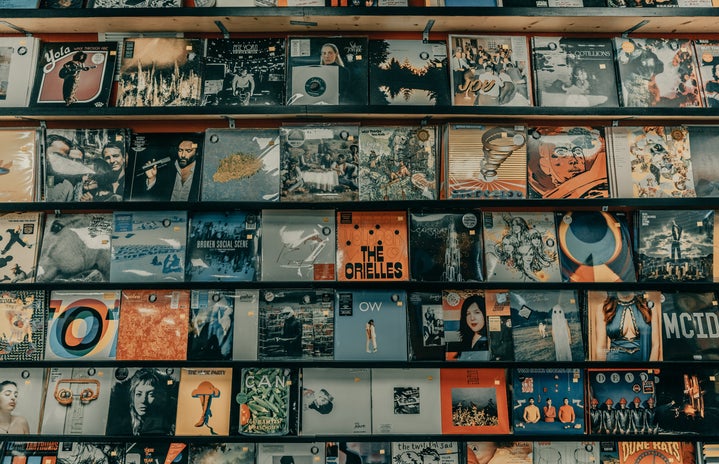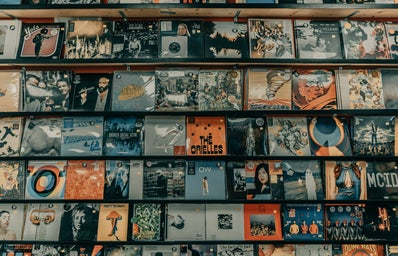“Do you feel like younger you would feel represented in music? Or is that day still on its way?”
“I think it’s still on its way. I mean what Asian person have you seen in mainstream music?” said Eric Nam in an interview with the Zach Sang Show in November 2019.
It sounds harsh, but Eric is right. Eric Nam, a Korean American born in Atlanta, has been in the K-pop industry for nearly ten years. His most recent album, Before We Begin, is entirely in English unlike his prior music primarily sung in Korean. And during the promotional interviews for his album, Nam has been very vocal about the lack of Asian—especially Asian American—representation in mainstream music.
Yes, recently Asians have been more visible in the music industry. Record-breaking K-pop artists like BTS have not only put Asians at the top of the charts but have become undeniable forces in the music industry. Unfortunately, Asian Americans in the music industry are still few and far between. Why have Asian Americans not been able to break through to the mainstream?
As a Korean American myself, I grew up always looking for people who looked like me on television. Since there were so few, I latched onto every Asian I saw. I remember my excitement seeing Asian contestants like Heejun Han and Jessica Sanchez on season 11 of American Idol. I didn’t realize it then, but the sadness I felt when they were eliminated was because they were the only Asian singers I knew. Once they were voted off, there was no one else I could look up to as a young Asian kid who loved to sing.
So, why are there so few Asians in American mainstream music?
To put things in perspective, it was only in 2020 when the first Asian act debuted at #1 in the history of the Billboard Hot 100 chart. This was accomplished by BTS twice in the last year with their singles “Dynamite” and “Life Goes On.”
Outside of K-pop, only a few Asian artists have been able to find mainstream success and can say they’ve “made it” in the Western music industry—Bruno Mars, who is of Filipino and Puerto Rican descent, Nicole Scherzinger, who is of Native Hawaiian Filipino descent, and most recently, Olivia Rodrigo, who is of Filipino descent on her father’s side. But these artists aren’t usually considered Asian American artists, because they do not fit into what most Americans think Asians look like.
Even though we like to think the music industry is all about music, marketability and image play a large role as well. Paul Kim, who made it to the top 24 on season 6 of American Idol, said back in 2007, “I was told over and over again by countless label execs that if it weren’t for me being Asian, I would’ve been signed yesterday.” As record labels and music industry executives continue to ignore Asian talent, it only becomes that much harder for someone to be that breakthrough Asian American artist that paves the way.
The Future of Asians in Music
But unlike Kim in 2007, Asian American artists today don’t have to be noticed by a record label to get their start in the industry. Anybody can upload their music on YouTube, Spotify, Apple Music or SoundCloud and gain a following on social media to get them noticed. Casey Luong, a Vietnamese American born in Texas, got his start on SoundCloud uploading songs under the alias “keshi.” He garnered a following and is now a prominent artist in the lo-fi hip-hop scene signed to Island Records.
There are also exciting things coming from 88rising, an American mass media company founded by Sean Miyashiro in 2015. 88rising’s mission is to uplift and amplify the voices of Asian artists and underrepresented voices in music. The record label and management company includes a diverse group of artists spanning many genres of music. Rich Brian, an Indonesian rapper and singer, NIKI, an Indonesian singer-songwriter and Joji, a Japanese singer-songwriter are a few of the artists a part of the 88rising collective.
With labels like 88rising, the growing popularity of K-pop and artists on the rise, we are finally starting to see some Asian representation in the music industry.
“My dream is we get to a point where there’s a bunch of everybody. It’s just a complete melting pot of music that is more representative of not only the States, but the world,” said Eric Nam in an interview with TIME.
We know Asian artists have talent. Now, it’s just about amplifying their voices and supporting Asian artists because representation matters, and, with more, a talented Asian kid who loves music will have artists to look up to and may dare to follow their dreams.


